
Find Help
More Items From Ergsy search
-

How are school meals provided in the UK?
Relevance: 100%
-

What is the average cost of a school meal in the UK?
Relevance: 97%
-

Who is responsible for providing school meals in the UK?
Relevance: 97%
-

Are school meals free for all students in the UK?
Relevance: 96%
-

Are school meals inspected for quality and standards?
Relevance: 96%
-

What is the purpose of providing school meals in the UK?
Relevance: 96%
-
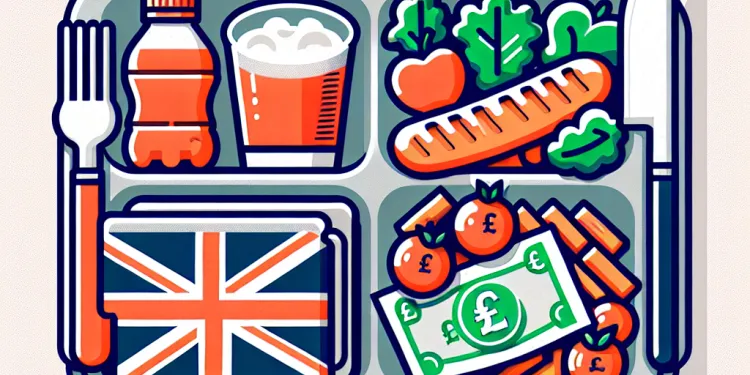
What is included in a typical school meal in the UK?
Relevance: 95%
-
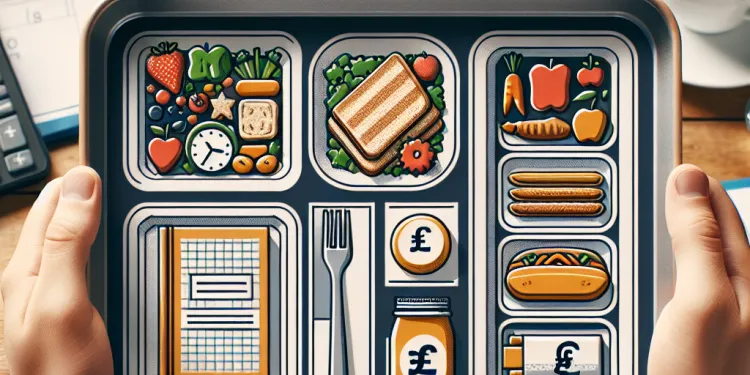
Are there educational components to the school meal program?
Relevance: 93%
-

Who provides the funding for free school meals in the UK?
Relevance: 93%
-

Are vegetarian or vegan options available in UK school meals?
Relevance: 92%
-
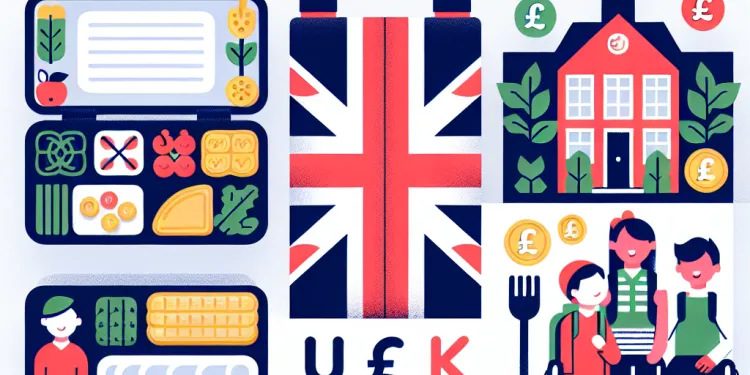
Can children with disabilities access school meals?
Relevance: 91%
-
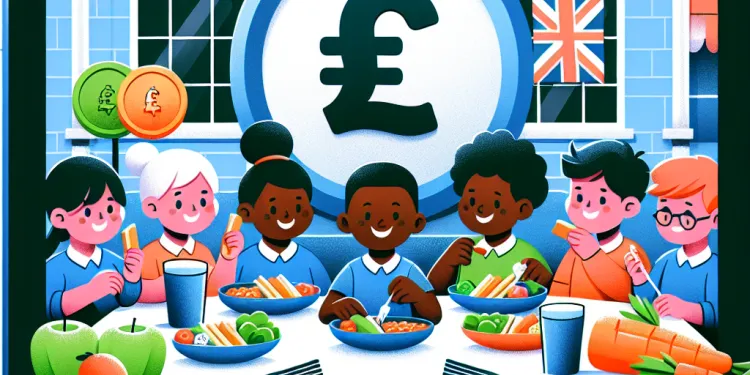
How can parents provide feedback on school meals?
Relevance: 89%
-
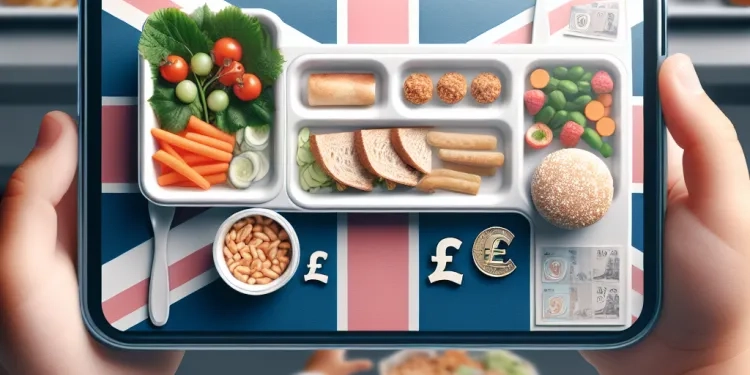
How are special dietary requirements catered for in school meals?
Relevance: 88%
-

What measures are taken to ensure food safety in school meals?
Relevance: 84%
-

What criteria must be met for a child to be eligible for free school meals?
Relevance: 84%
-
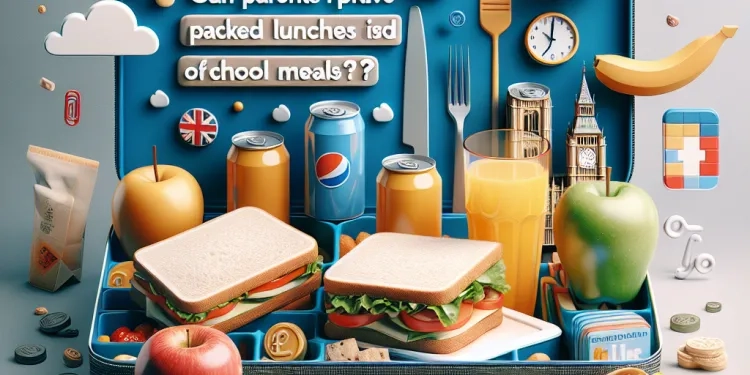
Can parents provide packed lunches instead of school meals?
Relevance: 82%
-

Is there a focus on healthy eating in UK school meals?
Relevance: 73%
-

Ministers to Debate Extension of Free School Meals for Low-Income Families
Relevance: 62%
-

What time are meals served?
Relevance: 57%
-

Calls for Better School Lunch Standards After Nationwide Survey
Relevance: 55%
-

See4School
Relevance: 53%
-

Are there any initiatives to reduce food waste in schools?
Relevance: 53%
-

How are school meal providers selected?
Relevance: 51%
-

How are food allergies managed in UK schools?
Relevance: 49%
-

How can I calculate the fat content in my meals?
Relevance: 47%
-

Do SEND children attend mainstream schools?
Relevance: 45%
-

Do school meals include both hot and cold options?
Relevance: 45%
-

What is the SENCO's role in a school?
Relevance: 44%
-

What role do schools play in managing concussions?
Relevance: 43%
-

Are there specific laws governing SEND in schools?
Relevance: 43%
-

What happens to my loans if I go back to school?
Relevance: 43%
-

What support is available for SEND children in schools?
Relevance: 42%
-

Can I go to work or school if I have norovirus?
Relevance: 42%
-

What role do schools play in supporting the social media ban?
Relevance: 41%
-

Calls to Ban Vapes Near School Grounds Gain Momentum
Relevance: 40%
-

How can schools create an inclusive environment for SEND children?
Relevance: 40%
-

Joint School - Knee Exercises
Relevance: 35%
-

What support is available outside of school for SEND children?
Relevance: 33%
-

Joint School - Hip Exercises
Relevance: 32%
-

New Government Benefits for Low-Income Families
Relevance: 31%
Introduction to School Meals in the UK
In the United Kingdom, school meals are an integral part of the education system, playing a crucial role in child development and education. The provision of meals in schools aims to ensure that children receive the necessary nutrition to promote growth, enhance performance, and improve overall well-being.
Addressing Nutritional Needs
One of the main purposes of providing school meals is to meet the nutritional needs of children. Many pupils rely on school meals as a primary source of daily nutrition, particularly those from low-income families. These meals are designed to be balanced and healthy, ensuring that children receive adequate portions of vitamins and minerals essential for their development. The UK government has implemented standards to ensure that school meals include a variety of fruits, vegetables, proteins, and grains, which support physical health and cognitive function.
Improving Educational Outcomes
Proper nutrition is closely linked to academic performance. Hungry children may struggle to concentrate, have lower energy levels, and even face challenges in understanding lessons. By providing nutritious meals, schools help to ensure that students are ready to learn and participate actively in their education. Studies have shown that students who have access to good nutrition perform better academically, which is why school meals are considered a vital part of the education ecosystem.
Reducing Inequality
School meals play a significant role in reducing social and economic inequality. By offering free or subsidised meals to children from disadvantaged backgrounds, the policy helps to level the playing field, ensuring all students can access the nutrition they need regardless of their socio-economic status. This support helps prevent the cycle of poverty by aiding children in achieving better educational outcomes, leading to greater opportunities in the future.
Promoting Healthy Eating Habits
Establishing healthy eating habits from a young age is important for lifelong well-being. School meals provide an opportunity to expose children to a variety of foods and educate them about balanced diets. By promoting healthy eating at school, children are more likely to carry these habits into adulthood, which can help in reducing the prevalence of diet-related health issues such as obesity and heart disease.
Conclusion
In conclusion, the provision of school meals in the UK serves multiple important purposes, from addressing nutritional needs and improving educational outcomes to reducing inequality and promoting lifelong healthy eating habits. School meals are a crucial component of both the education and health sectors, contributing significantly to the well-being and future success of children across the country.
Introduction to School Meals in the UK
In the UK, schools give children meals. These meals help kids grow and learn. They make sure kids eat good food that helps them feel and do better in school.
Addressing Nutritional Needs
School meals give kids the food they need. Some kids depend on these meals, especially if their families don't have much money. The meals have fruits, vegetables, meats, and grains. This mix helps kids stay healthy and strong.
Improving Educational Outcomes
Eating good food helps kids learn better. If kids are hungry, they might find it hard to focus and understand school work. Nutritious meals give kids energy to learn and do well in school.
Reducing Inequality
School meals help make things fair for all kids. Some children get free meals if their families can't afford them. This helps all kids get the same chance to do well in school.
Promoting Healthy Eating Habits
It's important to learn to eat healthy from a young age. School meals show kids different foods and teach them about balanced diets. Learning good eating habits in school helps kids stay healthy when they grow up.
Conclusion
School meals in the UK are very important. They help kids eat well, learn better, get equal opportunities, and learn to eat healthy. School meals are important for helping kids have a good future.
Frequently Asked Questions
What is the purpose of providing school meals in the UK?
The primary purpose is to ensure students receive at least one balanced and nutritious meal during the school day, which supports their health, growth, and learning.
How do school meals support children's learning?
Proper nutrition through school meals can improve concentration, cognitive function, and overall academic performance.
Are school meals designed to meet nutritional standards?
Yes, school meals in the UK must follow government-established nutritional guidelines to ensure they are healthy and balanced.
Who is eligible for free school meals in the UK?
Eligibility often includes families receiving certain benefits, such as Universal Credit, and low-income families.
Why is providing free school meals important?
They help combat food insecurity and poverty, ensuring all children have equal access to a nutritious meal regardless of their family's financial situation.
How do school meals help in promoting equitable access to nutrition?
They remove disparities by providing all children access to high-quality meals, regardless of socioeconomic status.
What impact do school meals have on children's health?
Regular nutritious meals can prevent health issues such as obesity, malnutrition, and other diet-related diseases.
How do school meals contribute to a child's well-being?
Beyond nutrition, school meals can help build routines, social skills, and an understanding of healthy eating.
What role do school meals play in supporting families?
They ease financial strain by reducing the burden on families to provide all meals and ensure children eat healthily.
Do school meals address childhood obesity?
By providing balanced meals, schools help promote healthy weights and educate children about portion control and nutrition.
How do school meals impact student attendance?
Proper nutrition supports immunity and health, potentially reducing absenteeism due to sickness.
What educational opportunities do school meals provide?
They offer a practical platform to teach children about food origins, nutrition, and the importance of a balanced diet.
How do school meals support local economies?
Schools often source food locally, supporting farmers and producers in the community, and creating local jobs.
Are there initiatives to improve the quality of school meals?
Yes, ongoing reviews and policies aim to enhance meal quality and ensure they're both nutritious and appealing to students.
How do school meals address dietary restrictions and preferences?
Schools provide different meal options to accommodate various dietary needs, including allergies, vegetarian, and religious preferences.
What is the role of government in school meals?
The government sets nutritional standards and policies to ensure meals are healthy and accessible.
How do school meals influence eating habits?
They introduce children to a wide variety of foods, promoting more diverse and healthier habits.
Why are school breakfasts important alongside lunches?
School breakfasts can address morning hunger, providing children with energy and focus for the entire school day.
What challenges exist in providing school meals?
Challenges include funding, meeting diverse dietary needs, and ensuring all meals are nutritious and appealing.
How do school meals integrate educational elements of sustainability?
They often focus on teaching students about sustainable food practices, such as reducing waste and understanding seasonal eating.
Why do schools in the UK give food to students?
Schools give meals to make sure all children eat healthy food every day.
Eating healthy food helps children learn and grow.
Some children may not have enough food at home, so school meals help them get the food they need.
You can use pictures of food to help understand what a healthy meal looks like.
Ask a teacher if you want to learn more about school meals.
The main goal is to make sure kids get at least one healthy and balanced meal at school. This helps them stay strong, grow well, and learn better.
How do school meals help kids learn?
School meals give kids the food they need to grow strong and learn. Eating healthy meals at school helps kids feel good and pay attention in class.
Good foods like fruits, vegetables, and proteins keep their bodies and brains working well. When kids eat healthy meals, they have more energy and can focus better on their lessons.
If a child doesn't eat enough, it can be hard for them to concentrate and learn. School meals make sure every child gets what they need to do well in school.
To help remember, try using pictures of healthy foods or make a list of favorite fruits and vegetables.
Eating healthy food at school helps kids pay attention better, think clearly, and do well in school.
Do school meals have the right nutrition?
Nutrition means having the right amount of healthy things in food. School meals should help kids grow and stay healthy.
You can do a few things to understand more:
- Ask your teacher or a school helper about the food.
- Look at posters in the cafeteria about healthy food.
- Use apps or tools that talk about healthy eating.
Yes, school meals in the UK must follow rules set by the government. These rules make sure the food is healthy and good for you.
Can you get free school meals in the UK?
Some kids in the UK can get free lunch at school. Here are some ways to check if you can get them:
- If your family gets certain benefits or help from the government, you might get free meals.
- If you go to a school that gives free meals to all kids, then you can get free meals too.
If you are not sure, you can ask your school or look online for more help. You can also use a computer or a phone to find out more.
Help is usually for families who get certain benefits, like Universal Credit, and families who do not have much money.
Why is giving free meals at school important?
Free meals at school help kids grow strong and stay healthy. Eating good food gives them energy to learn and play.
Some families don't have enough money to buy food. Free meals make sure all kids get to eat.
When kids are not hungry, they can focus better in class and do well in their studies.
Free school meals are important because they help everyone have the same chance to succeed.
To understand better, you can:
- Watch videos with pictures about school meals.
- Ask an adult to explain more to you.
- Use apps that read text out loud.
They help make sure all kids get healthy food. This is important for kids who do not have enough food or live in families without a lot of money.
How do school meals help everyone get healthy food?
School meals give kids food to eat at school. This helps all kids get the same chance to eat healthy food.
Here are some ways school meals help:
- They make sure kids get breakfast and lunch.
- They give kids the energy to learn and play.
- All kids can eat, even if they don't have enough food at home.
If reading is hard, you can:
- Ask someone to read with you.
- Use audio books to listen instead of reading.
- Use a dictionary to find out what words mean.
They make sure all children get good meals, no matter how much money their family has.
How do school meals affect children's health?
Eating good meals can help stop health problems. These problems include being too big (obesity), not getting enough of the right food (malnutrition), and other sicknesses that come from what we eat.
How do school meals help children feel good and stay healthy?
School meals are important for more than just food. They help kids learn daily routines, make friends, and understand how to eat healthy.
How do school meals help families?
School meals give children food to eat.
This helps parents save money because they do not need to buy as much food.
School meals make sure kids have a good lunch, so they can grow strong and learn well.
If you find reading hard, try using pictures or ask someone to read with you.
They make money problems easier for families. Schools help by giving children meals, so families don't have to worry about all the food. This helps kids eat healthy too.
Do school lunches help kids stay healthy?
Schools give kids balanced meals. This helps them stay healthy and strong. Kids also learn how much food to eat and what foods are good for them.
Do school meals help students come to school?
Students sometimes miss school for different reasons. Good meals at school can help them come more often. This is because when students eat well, they feel better and learn better.
Here are some things that can help:
- Make sure students get breakfast and lunch at school.
- Teachers and staff can encourage healthy eating.
- Parents can talk to schools about meal plans.
Eating healthy food helps to keep you well. It can make you less likely to get sick and miss school or work.
How can school meals help you learn?
The platform helps teach kids where food comes from. It also shows them which foods are good for their bodies and why it's important to eat different kinds of food.
How do school meals help local businesses?
Schools get their food from nearby places. This helps farmers and workers close to home. It also makes more jobs where you live.
Are there plans to make school food better?
Yes, there are plans to make school food better. Schools want meals to be tasty and healthy.
Here are some tools and tips to help:
- Teachers and parents can talk together about what foods to include.
- Schools can ask a food expert for advice.
- Children can try new foods and say what they like.
- Use colorful pictures to show which foods are healthy.
Yes, people are always checking and making new rules to make school meals better. They want the food to be healthy and taste good, so students enjoy eating it.
How do school meals help with special diets and food choices?
School meals can give food to all children, even if they need special diets or have certain foods they like. Here are some ways they do this:
- Schools ask parents about any special food needs at the start of the year. This helps them know what each child can eat.
- They make different food options so all children can have something to eat.
- The school may work with a dietitian. A dietitian is a food expert who can help plan meals for the school.
Here are some tips if your child has special food needs:
- Talk to your child's teacher and the school about what your child can eat.
- Check if the school can make a special meal for your child.
- You can pack a lunch for your child if it's hard to find the right food at school.
It's important to make sure all children get the food they need at school.
Schools give different food choices to help everyone eat well. This includes food for people with allergies, for vegetarians, and for those who follow certain religious diets.
If you are not sure about the food, you can ask a teacher for help. They are there to support you. You can also use tools like pictures or apps on a tablet to help choose your meals.
What does the government do for school meals?
The government helps make sure kids get good food at school. They have rules to make the food healthy. They sometimes give money to schools to buy food. They want all children to eat well and be strong.
Sometimes schools make their own choices about food. The government checks if the food is good for kids.
If you find reading hard, try using a ruler to follow the lines. Reading out loud or with a friend can also help you understand better.
The government makes rules about food to make sure meals are good for us and available to everyone.
Do school meals change how kids eat?
They help kids try many different foods, which can lead to healthier eating habits.
Why are school breakfasts important along with lunches?
School breakfasts help kids start the day with energy. Just like lunches, they give kids the food they need to learn and play.
Breakfasts can help kids feel awake and happy in the morning. Eating in the morning can help kids do better in class.
To help with reading, you can use pictures, read out loud, or ask someone to help explain the words. Tools like audiobooks or reading apps can also be useful.
Eating breakfast at school can help stop kids from feeling hungry in the morning. It gives them energy and helps them pay attention all day at school.
What problems are there with school meals?
Here are some things that can make school meals hard:
- Not enough money to buy good food.
- Some schools have small kitchens.
- Not enough staff to cook and serve meals.
- Different kids like different foods.
- Kitchens need to be clean and safe.
Tools that can help:
- Pictures and Menus: Use pictures to show what meals look like.
- Cooking Classes: Teach kids how to make easy meals.
- Choice Cards: Let kids pick what they want to eat.
Some problems are getting enough money, giving different foods for different people, and making sure all meals are healthy and tasty.
How do school lunches teach us about looking after our planet?
They often teach students about how to handle food in a good way. This means wasting less food and knowing which foods grow in which seasons.
Useful Links
This website offers general information and is not a substitute for professional advice.
Always seek guidance from qualified professionals.
If you have any medical concerns or need urgent help, contact a healthcare professional or emergency services immediately.
Some of this content was generated with AI assistance. We’ve done our best to keep it accurate, helpful, and human-friendly.
- Ergsy carfully checks the information in the videos we provide here.
- Videos shown by Youtube after a video has completed, have NOT been reviewed by ERGSY.
- To view, click the arrow in centre of video.
- Most of the videos you find here will have subtitles and/or closed captions available.
- You may need to turn these on, and choose your preferred language.
- Go to the video you'd like to watch.
- If closed captions (CC) are available, settings will be visible on the bottom right of the video player.
- To turn on Captions, click settings .
- To turn off Captions, click settings again.
More Items From Ergsy search
-

How are school meals provided in the UK?
Relevance: 100%
-

What is the average cost of a school meal in the UK?
Relevance: 97%
-

Who is responsible for providing school meals in the UK?
Relevance: 97%
-

Are school meals free for all students in the UK?
Relevance: 96%
-

Are school meals inspected for quality and standards?
Relevance: 96%
-

What is the purpose of providing school meals in the UK?
Relevance: 96%
-

What is included in a typical school meal in the UK?
Relevance: 95%
-

Are there educational components to the school meal program?
Relevance: 93%
-

Who provides the funding for free school meals in the UK?
Relevance: 93%
-

Are vegetarian or vegan options available in UK school meals?
Relevance: 92%
-

Can children with disabilities access school meals?
Relevance: 91%
-

How can parents provide feedback on school meals?
Relevance: 89%
-

How are special dietary requirements catered for in school meals?
Relevance: 88%
-

What measures are taken to ensure food safety in school meals?
Relevance: 84%
-

What criteria must be met for a child to be eligible for free school meals?
Relevance: 84%
-

Can parents provide packed lunches instead of school meals?
Relevance: 82%
-

Is there a focus on healthy eating in UK school meals?
Relevance: 73%
-

Ministers to Debate Extension of Free School Meals for Low-Income Families
Relevance: 62%
-

What time are meals served?
Relevance: 57%
-

Calls for Better School Lunch Standards After Nationwide Survey
Relevance: 55%
-

See4School
Relevance: 53%
-

Are there any initiatives to reduce food waste in schools?
Relevance: 53%
-

How are school meal providers selected?
Relevance: 51%
-

How are food allergies managed in UK schools?
Relevance: 49%
-

How can I calculate the fat content in my meals?
Relevance: 47%
-

Do SEND children attend mainstream schools?
Relevance: 45%
-

Do school meals include both hot and cold options?
Relevance: 45%
-

What is the SENCO's role in a school?
Relevance: 44%
-

What role do schools play in managing concussions?
Relevance: 43%
-

Are there specific laws governing SEND in schools?
Relevance: 43%
-

What happens to my loans if I go back to school?
Relevance: 43%
-

What support is available for SEND children in schools?
Relevance: 42%
-

Can I go to work or school if I have norovirus?
Relevance: 42%
-

What role do schools play in supporting the social media ban?
Relevance: 41%
-

Calls to Ban Vapes Near School Grounds Gain Momentum
Relevance: 40%
-

How can schools create an inclusive environment for SEND children?
Relevance: 40%
-

Joint School - Knee Exercises
Relevance: 35%
-

What support is available outside of school for SEND children?
Relevance: 33%
-

Joint School - Hip Exercises
Relevance: 32%
-

New Government Benefits for Low-Income Families
Relevance: 31%


